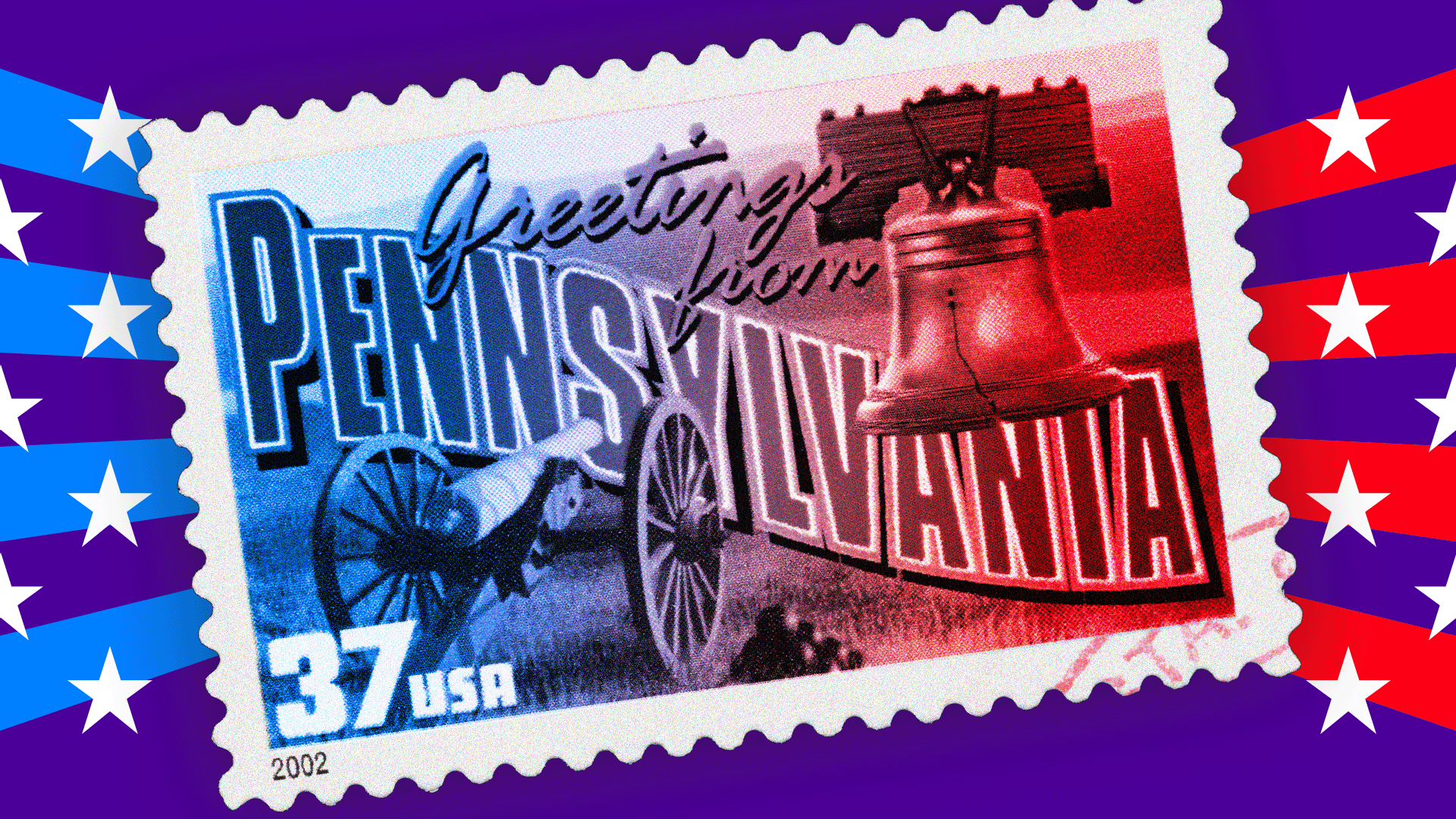A quick guide to swing state Pennsylvania

- Published
Pennsylvania, famous for the Liberty Bell, Will Smith and the 72 “Rocky Steps”, is one of seven states that will decide the 2024 US presidential election.
Voting in swing states is hard to predict and can lean Republican or Democrat - that’s why you’re hearing so much about them as campaigning draws to a close.
Here’s all you need to know.
Population
12.97m, same as Moscow
Electoral college votes
19 of 538
In a nutshell
It’s hard to win the White House without Pennsylvania, which carries the most electoral votes of all the swing states.
2020 margin
Biden by 82,000 votes.
What's the deal now?
Pennsylvania’s prized 19 electoral votes make it one of the most visited states by both candidates. It is also the place where a supporter of Trump was killed at a rally, in a hail of bullets targeting the former president.
What are voters saying?
In Morrisville, eastern Pennsylvania, Stephen Connolly says swing state voters like himself are "exhausted" from the political campaigning targeting them.
“The majority of voters, they already know who they’re going to vote for,” the registered Democrat explains.
South of Pittsburgh, Republican Andy Jones, 50, says it’s “kind of cool” to be at the forefront of voting every year.
“It puts us on the map,” he says. A retired Marine, he says he is concerned about the economy and border security and plans to support Trump.
Only about 3% of voters in the state identify as undecided, according to an August 2024 Emerson College Polling/The Hill swing state survey, external.
The same survey suggests Republicans and Democrats are split at 48%.
What's the expert view?
Pennsylvania’s mix of urban and rural populations make it a competitive state for both presidential candidates, says Christopher Borick, director of the Muhlenberg College Institute of Public Opinion. He says candidates must be attentive to every demographic to court voters and need to campaign on platforms that address key issues - the economy, inflation, immigration, reproductive rights and health care.
For Trump, this could mean targeting voters of colour – which polling suggests is an opportunity to win more voters than he received in 2020. Mr Borick says the question for the Harris campaign is whether she can win over Republican voters.
“Ultimately, the smallest of shifts can be incredibly impactful in a state in which the last two presidential races were decided by less than one percentage point,” he explains.
What to watch out for on election night
It was one of the last states to be called in 2020, four days after the election, so don’t expect a fast outcome
Look out for Erie County which has been a bellwether in recent presidential elections
A lot of eyes are the Senate race where sitting Democrat Bob Casey faces a well-resourced challenge from former hedge fund boss Dave McCormick
Reporting by Rachel Looker.
